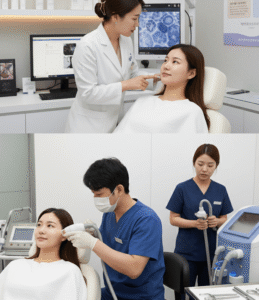Korea is fast becoming a global powerhouse in medical tourism, offering world-class healthcare, advanced technology, and exceptional patient service. In 2024, the country welcomed over 1 million foreign patients, setting a new record in healthcare exports. With rising international demand, the Korean government and medical industry are preparing a comprehensive strategy for 2026—focusing on premium services, smart healthcare systems, and sustainable growth.
Korea’s Current Position in Global Medical Tourism
Over the past decade, Korea has evolved from a regional medical destination into one of the top global choices for foreign patients. The government’s target for the coming years is to attract 700,000 foreign patients annually by 2027, strengthening Korea’s position as a leader in medical excellence.
The focus is shifting from purely medical services to a complete “health and wellness experience.” This includes integrating travel, cultural experiences, and holistic recovery with advanced treatment. The strategy also seeks to balance medical tourism growth across regions, ensuring that hospitals in cities like Busan, Daegu, and Jeju share in the success that Seoul currently dominates.
Key Strategies Shaping 2026
1. Simplified Medical Visa and Immigration Process
The Korean government plans to expand fast-track medical visas and streamline entry for patients seeking advanced care. Hospitals and facilitators are expected to provide end-to-end support—from visa applications to post-treatment coordination.
2. Regional Expansion and Decentralization
Medical tourism has long been centered in Seoul, but new efforts aim to distribute patient flow to regional hospitals. This approach helps reduce overcrowding, promotes regional development, and improves access to specialized facilities throughout the country.
3. Premium Patient Experience and Concierge Services
Hospitals are being encouraged to create international patient centers offering translation, interpretation, and hospitality assistance. Premium medical tourism will focus not only on successful treatment outcomes but also on seamless patient experiences, from airport pickup to recovery care.
4. Hybrid and Digital Healthcare Models
Telemedicine is becoming an essential tool for global healthcare. Korean hospitals are investing in pre- and post-treatment teleconsultations, allowing patients to receive follow-up care remotely. This ensures continuity even after they return to their home countries and reduces travel burden.
5. Branding Korea as a Medical Powerhouse
Under the “K-Medical” initiative, Korea is combining its strengths in technology, culture, and innovation to attract more global patients. The country’s reputation in fields like plastic surgery, fertility, oncology, and regenerative medicine is helping build global trust. Korean medical branding also leverages the success of K-culture—using the global appeal of Korean entertainment, fashion, and beauty to enhance awareness of healthcare quality.
6. Stronger Regulation and Patient Protection
To maintain international credibility, Korea is introducing stricter certification systems for hospitals treating foreign patients. These include transparent pricing, ethical marketing, and enhanced legal protections for patients. Government oversight will ensure that only accredited institutions can market medical tourism services.
7. Integration of Wellness and Tourism
Korea is also merging healthcare with wellness. Hospitals and travel agencies are collaborating to design programs that combine medical treatment, recovery, and leisure—for example, cancer recovery packages that include meditation, spa therapy, and nature retreats in Jeju or Gangwon Province.
What International Patients Will Expect in 2026
Foreign patients seeking care in Korea are likely to prioritize:
➡️ Comprehensive packages – visa support, accommodation, and hospital coordination under one service.
➡️ Transparent pricing and safety standards – clear estimates and internationally recognized care protocols.
➡️ Comfort and communication – multilingual support and culturally sensitive patient care.
➡️ Post-care continuity – easy access to doctors through telehealth and overseas partner clinics.
➡️ Integrated experiences – the ability to combine medical care with wellness and cultural exploration.
Hospitals and clinics that deliver both advanced medical treatment and personalized hospitality will stand out in this new era.
Challenges Ahead
Even with its strengths, Korea’s medical tourism industry faces challenges that must be addressed:
➡️ Language and cultural gaps – continuous training for staff and interpreters is essential.
➡️ Overconcentration in Seoul – regional hospitals must develop specialized programs to attract more international patients.
➡️ Legal and insurance complexity – global patients require more transparent liability and insurance frameworks.
➡️ Intense competition – neighboring countries like Thailand, Singapore, and Japan are also investing heavily in healthcare tourism.
➡️ Sustainability and ethics – maintaining service quality while expanding volume is crucial to preserving Korea’s premium brand.
Opportunities for Clinics and Healthcare Providers
To align with Korea’s 2026 strategy, clinics and hospitals can take several practical steps:
➡️ Build international patient departments with multilingual coordinators and cultural training.
➡️ Offer hybrid care—combine teleconsultations with in-person procedures.
➡️ Obtain global accreditations such as JCI (Joint Commission International) to strengthen trust.
➡️ Partner with travel and hospitality sectors to provide complete treatment packages.
➡️ Strengthen digital presence—create multilingual websites, patient portals, and online booking systems.
➡️ Participate in international medical expos to showcase expertise and attract partnerships.
The Road to 2026 and Beyond
By 2026, Korea’s medical tourism industry will move beyond its traditional focus on cosmetic surgery and wellness. It will become a hub for advanced treatments, smart healthcare, and personalized care experiences. Patients will come not only for the latest medical technology but also for the confidence, transparency, and comfort Korea provides.
Korea’s vision is to redefine medical tourism as a holistic experience that blends clinical excellence with innovation and hospitality. Through strong government policy, private-sector collaboration, and cultural branding, the country aims to set a new global standard for patient-centered healthcare travel.













